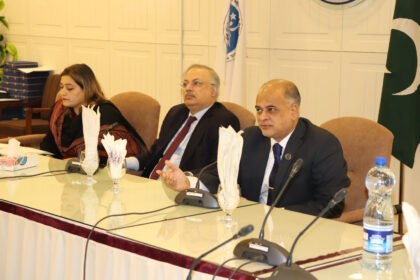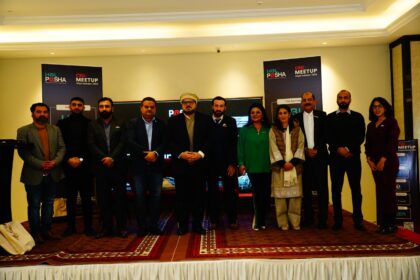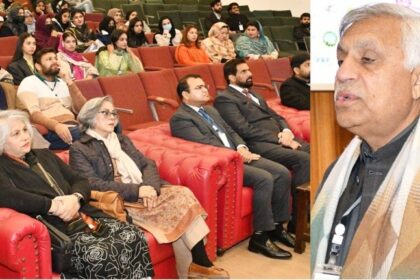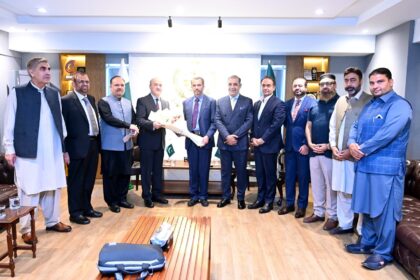The China-Pakistan Study Centre at the Institute of Strategic Studies Islamabad organised the launch of a new book that examines Pakistan China people-to-people connections, bringing together diplomats, academics and policymakers to discuss social and cultural dimensions that underpin the bilateral partnership.
Director General ISSI Ambassador Sohail Mahmood described Pakistan China relations as unique and enduring, built on mutual respect and strategic trust. He said the book’s focus on public diplomacy, cultural exchanges, academic linkages, tourism and soft power complements economic projects such as CPEC and the Belt and Road Initiative by reinforcing human and cultural connectivity for future generations.
Ambassador Moin-ul-Haque and Ambassador Masood Khalid highlighted the centrality of Pakistan China ties to Pakistan’s foreign policy and proposed concrete measures to deepen people-to-people links, including sister-city partnerships, joint IT parks across provinces, group tourism programmes and expanded cultural exhibitions celebrating civilizational connections.
Speakers including Dr. Hassan Daud Butt, Dr. Sundus Mustaqeem and Ms. Aiza Azam underscored the role of education, media, film, digital platforms and academic dialogue in shaping long-term social bonds. The book was praised for documenting how student exchanges, cultural programmes and maritime tourism can translate strategic cooperation into everyday exchanges between citizens.
Referencing the recently adopted China-Pakistan Five-Year Action Plan 2025–29, discussants welcomed the plan’s dedicated chapter on people-to-people exchanges and urged special initiatives to mark the 75th anniversary of diplomatic ties in 2026 with wider youth, student, artist and media participation. Proposals also included visa facilitation, enhanced air connectivity, sports collaboration and heritage preservation to broaden engagement.
Mr. Xu Hangtian, Minister-Counsellor at the Embassy of the People’s Republic of China, highlighted practical indicators of growing ties: sister-city links rising from eight to 19 over the last decade, a near doubling of Pakistani students in China and a 17 percent rise in Chinese visas for Pakistani businessmen in 2024 with further increases in 2025. He warned against disinformation campaigns and stressed the need for media cooperation and counterterrorism collaboration to unlock the full potential of exchanges.
Ambassador Masood Khalid pointed to opportunities in maritime tourism and the blue economy, suggesting Pakistan could generate up to USD 1.5 billion annually in partnership with China. Participants called for wider dissemination of the book’s findings and closer collaboration among think tanks, universities and cultural institutions to ensure people-to-people engagement remains central to bilateral relations.
The launch drew senior diplomats, scholars and civil society representatives who agreed that strengthening Pakistan China people-to-people ties through education, tourism, cultural diplomacy and structured exchanges will safeguard the partnership beyond strategic and economic projects and foster deeper mutual understanding between the two nations.











